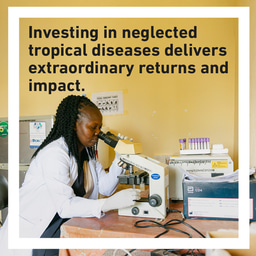Editor’s note: Jess Breen who blogs at The Organic Solution and Andrew Bissette round up the best blog moments of the year. If your favourite chemistry-related blog post doesn’t appear on the list, leave a comment letting us know what it is.
——————-
Last year we rounded up our ten favourite posts of 2013. This year we’ve ditched the round number, and instead compiled a Bumper Blogroll of topics that chemists have been talking about in 2014.
Science is increasingly interdisciplinary, as reflected in the now-traditional annual argument over whether the winners of the Nobel Prize for Chemistry are actually chemists or not. In this interdisciplinary spirit, we’ve not limited ourselves to chemists, instead drawing on some of the best writing by scientists of all stripes.
Women in science
In September, Science published a story about the top 50 scientists on Twitter. Among many others, Paige Brown Jarreau highlighted the shortage of women on the list, and offered an alternative list filled with fascinating female scientists. The relative absence of chemists on the original list also prompted reflection about how to better capture the imagination of the general public (see here and here).
Food for thought
The anonymity available to bloggers and commenters can be a blessing or a curse, allowing vulnerable people to speak the truth safely or offering malicious individuals a shield to hide behind. In January, Michael Eisen offered a thoughtful dissection of the differences between anonymity and pseudonymity and the ethical questions raised by social media and peer review. Questions of anonymity are not limited to social media, and Mark Lorch shared a story highlighting the importance and limitations of anonymity in peer review.
Organic synthesis
The Baran lab blog, Open Flask, is approaching its second anniversary and continues to share fascinating behind-the-scenes looks at their recent publications. The ever-brilliant BRSMblog has educated us throughout 2014; the highlight for us was a recap of three classic total syntheses. Meanwhile, Brandon Findlay of Chemtips spent the year offering invaluable practical advice to young researchers, such as a guide to bypassing the ‘black tar phase’ of synthesis.
PhD life
During the low-points of a PhD, a blog can offer an outlet for anxiety or a source of reassurance. Tom Phillips shared his struggle with the second-year blues, hopefully providing some comfort to others in the same situation. Via Chemjobber, Chad Jones shared lessons he learned in graduate school about coping with the demands of research. On a happier note, chemists from the University of Groningen shared their PhD experiences through the medium of dance.
Careers
Securing an academic position is hard, and from the outside it can seem almost impossible. Aidan Horner, a neuroscientist, shared his ‘negative CV’ of career and publishing rejections with the world to offer some reassurance to early-career researchers. As Aidan tells us, “you need to keep banging on the door until someone lets you in”. For those who do decide to leave academia, the fear of being seen as a failure can be off-putting. Women in particular may feel a duty to continue in academia to avoid becoming part of the ‘leaky pipeline’. Sci Curious shared at length her positive experience of leaving academia and thoughts on academic culture. Not all graduate students can or should continue in academia, and those who choose a different path should not be seen as failures.
Literature woes
The scientific literature can be a source of fascination or frustration. Dr Freddy shared five things that synthetic chemists hate to see in papers in a post that, remarkably, has a comment section worth reading. Meanwhile, Mike at Amboceptor asked what is the volume of a drop? It turns out that this classic unit is more widespread than one might think. Finally, Sylvain Deville recounted the making of a paper, from the inception of an idea, to the trials and tribulations of gaining the all-important results, to publication in Nature Materials.
Chemophobia
The popular notion that ‘chemicals are bad’, often called chemophobia, is a perennial topic for chemistry bloggers. Renée Webster shared her attempt to engage with a beauty company and asked how she could have done better. Alternatively, Chad Jones suggested that chemists can be too defensive when it comes to chemophobia. We hope these reflective writers will help promote a more nuanced approach to communication from chemistry bloggers.
#Realtimechem
No blog round-up would be complete without reference to #RealTimeChem week. Now in its second year, this is a highlight for the online chemistry community, showcasing some of the best writing and creativity chemists have to offer. Bring on #RealTimeChem week 2015!
Best new blog
Finally, our favourite new blog of the year is Compound Interest, written by Andy Brunning. Andy creates beautiful infographics about all sorts of everyday chemistry, from autumn leaves to xylitol. There is even a chemistry Advent calendar. To top it off, the infographics are available for purchase as full-sized posters for your office, lab, or classroom. Keep it up, Andy!





Please sign in or register for FREE
If you are a registered user on Research Communities by Springer Nature, please sign in